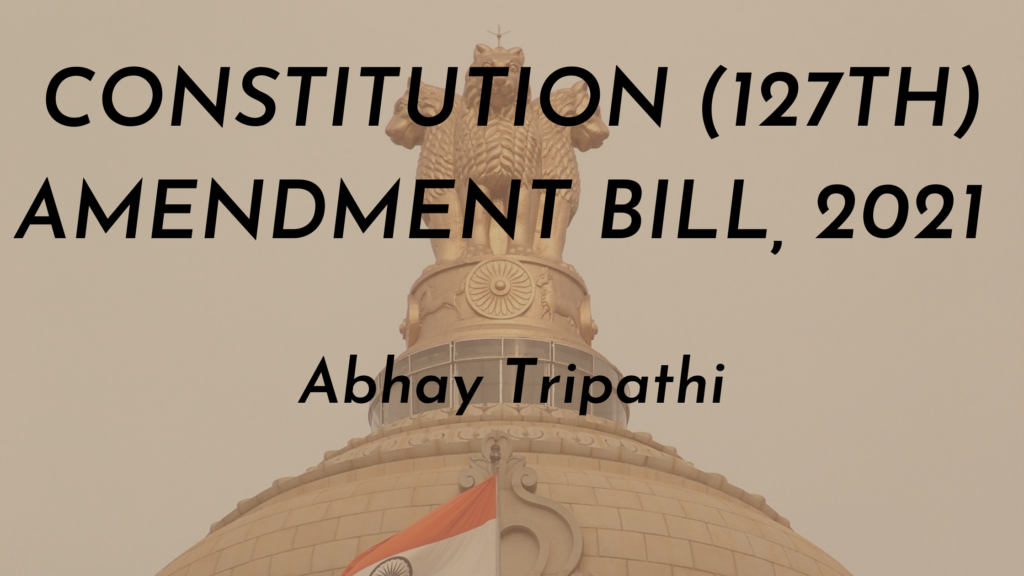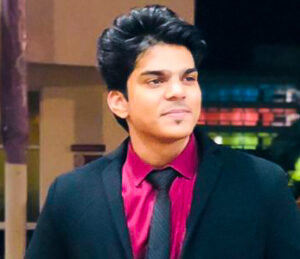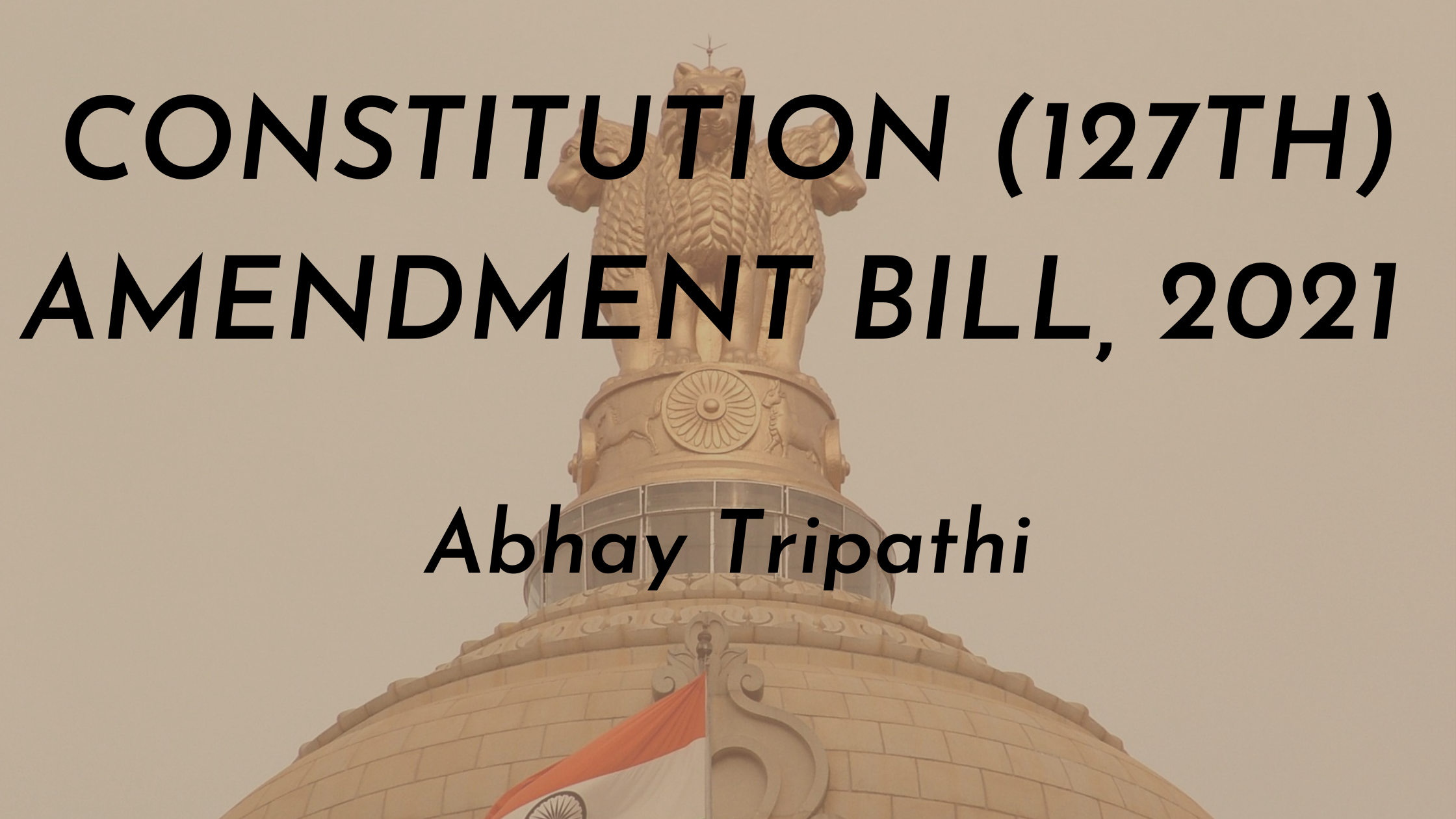
Background & Introduction
The Bill seeks to have the incarnation from the earlier 102nd Constitutional Amendment Act, which mandated the President of India as the critical decider to select or deselect the SEBCs for any state or union territory of India, on the prior recommendation of the NCBC-National Commission for Backward Classes. However, the Apex court’s decision was ruled off and upheld with a different interpretation of statutes which the 2018 Act had.
The new 2021 Bill originates its controversialist nature from the Maratha Reservation Case (Jaishri Laxmanrao Patil v. Union of India), in which the Apex court observed the validity of Maharashtra Socially and Educationally Backward Classes Act, 2018, after the Bombay High Court upheld the State government powers to report 50% ceiling limit under ordinary circumstances & later, the Justice Gaikwad Commission enrolled the same views per se. However, the new Bill restores the powers of the states & union territories to independently categorize or make deems fit for the SEBCs development educationally & culturally.
The Analysis
The doctrine of decentralization of state polices has been restored in the judgment of the Maratha Reservation Bill, whereby SEBCs are more critically subjected to state powers of regulation of their socially & educationally established norms & customs.
Abhay Tripathi from NITI TANTRA said that the 2021 Bill aims to amend Articles 342 clause 14 & Article 342 clause 25. However, introducing a new clause 342 A (3)6 which authorizes the state to opt SEBCs for reservation follow-up independently. The amendability doesn’t end here, but consequently, the Apex court had to amend Articles 366 (26c)7 & Article B (9). By these amendments, the states of observable reservation SEBCs will directly & by sole manner notify them without the intervention of NCBC for recommendation/ permission.
Why not politics? Consequently, why did the opposition support the Bill?
Apart from astonishing speedy trials, which the judiciary craved for decades, the 2021 Bill introduced its efficiency & took just 6 hrs to get passed
8. However, BJP majority cannot be made liable for the short-term discussion, the opposition framed via differential party lines of leading INC to outspoken only Pegasus Project report & made centre liable for privacy breach accusations, the farm laws & price hike.
In-between lines, politics couldn’t manage to drive out the strengths & weaknesses of the said Bill. The opposition took the lower house passage of the Bill for granted & drove the other said accusations loud in the lobby of the parliament
10. Whether BJP or INC, the parliamentary delimitations were crossed & the diligence of the constitution was harmed as the vice-president shook of tears in the next day sitting. As Winton Churchill said, “Politics is not a game but a serious business of interests”
The Consequences:
- The dynamics of the said 127th Bill has on various grounds substituted & empowered the states over the central authorized Presidential decisions. Now, Governors of the respective states will circumvent the state committees for the educational & cultural support to their respective state reserved communities.
- Presidential allocation of funds earlier was not as per the requirement of the states’ need but over the quantitative reflective of figures which kept on changing yearly. The 2021 Bill will prescribe the Governors to look more closely over injustice if there and be primarily responsible for funds inefficiency if faced in that respective state.
- More empowerment to local & reserved communities of Indian unheard districts, educationally more opportunities to their children in government jobs & the safeguarding to their custom by law.
- Statistics show 17.25% of rural households belong to OBCs, that is, 44.4%. Whereas SCs remained 21.7% & STs at 12.5% by the 2015 survey of caste analytics. The figures can be the opportunity for employment & India’s economic upliftment if provided with sufficient support to their livelihood
The National Commission for Backward Classes Act 1993 passed under VP Singh’s government of 1990 necessitated Presidential enabling powers to provide the NCBC for the OBCs, SCs & STs empowerment.
However, the 21st century has changed the proliferating gaps between the castes & traditions of various cultures; therefore, the enabling nature requires more potentiality for the Governors to provide with ample powers to look into the said issues as the Mandal Commission Report of objectifies but carried political pressure to liquidate the said act recommendation by uprooting OBCs via reservation means & not providing basic necessities
Not an Exception! The same subjectivity has already been experienced in Indian reservations procedures when the Haryana government decided to reserve 75% of all private & government jobs in the state. However, by the same lines, Jagan Mohan Reddy’s government in Andhra Pradesh too adopted this method of reservation liquidation to transmit their vote banks & if not on a ground basis
Comments by Eminent Personalities :
The debates in the upper house, Rajya Sabha, the house of the elders, showed the meaningful cum insightful argumentations & procured the historical aspects of 2021 said, Bill.
The descriptions Opposition leaders mentioned highlighted the two-fold impact of the said Bill on Indian society. Firstly the demographic scenario of the existing SEBCs will directly affect the opportunistic limitation of the people falling in this category. Secondly, questioned the frequent & non-discussed nature of the BJP MPs in the sitting of the Monsoon Session leading to non-disclosure of the intentions of the said Bill by the respective Ministers & also questioned the absence of honorable Prime Minister in the 2 hr Session discussion held. Whether Lok Sabha or Rajya Sabha, various eminent personalities made remarks in the established Bill as follows;
Shri. Abhishek Manu Singhvi (West Bengal) took on with the “path to hell is paved with good intentions” & subjected the Modi government for scrapping the States’ power in the 102nd Bill 2018 & pointed out that amending Article 342 & increasing the equality of OBCs list with the SCs & STs list will be a constitutional disaster
Shri. Shushil Kumar Modi (Bihar), deliberating the Supreme Court judgment of the Maratha Reservation Bill (Jaishri Laxmanrao Patil v. Union of India, PIL No. 175 of 2018), questioned the Supreme Court’s confused view on the same. That is, at one point, the Supreme Court says states have been deprived of the power to prepare SEBCs list & on the other proceeding, Supreme Court recognized the ability of States to make reservations in favor of particular communities or castes, the quantum of reservation, the nature of benefits and the kind of reservation’.
Mr. Modi pointed out that, Article 340 submission for the establishment of Backward Classes Commission & when Kaka Kalelkar Commission formed accordingly why INC did not pose the question of law of today’s requirement in 1955 when Jawaharlal Nehru government was in power. He said, ‘INC has a valid interest in the said support to this 127th Amendment Bill & if not per se depicted by its natural reasons, take the issue to the President for final submission without delayed parliamentary sessions’.
However, Vice-Chairman Surendra Kumar Nagar pointed out that the powers & the delimitations that the Schedule Castes Commission has similarly the Civil Court has. The ability to summon, enforce the attendance, production of documents, evidence on affidavit, etc. Therefore, if Opposition leaders say that the Kaka Kalelkar Commission was not a judicial body to adhere to public endeavors, it can not be accurate as the Indian Courts were always competent & jurisdiction wise, too, available for the same course of the matter.
Shri. Derek O’Brien (West Bengal), nonetheless, not on the matter of the facts the Bill suppose to discuss in its 2.5 hr session, Mr. Brien took on the honorable Prime Minister for his absence on the said day & asked the BJP MPs to answer & report prepared on the Pegasus issues as INC raised in the Lok Sabha by its full potential.
Shri. Tiruchi Siva (Tamil Nadu) commented, ‘the delimitation of not only territories India had in its constitution, but the Backward Classes of India too indirectly faced the same in INC power times. However, putting SCBCs under Article 15 & 16 will rejoin their cultural upliftment and support the centre for the same to interpret the real need of the 127th Bill’.
The Conclusion
The Constitutional 127th Amendment Bill seeks to objectify the ruling of the Maratha judgment, which has its legal history of various judicial interpretations. However, the new Bill will bring to Indian society the Governors’ mainstream functionality in the look after of the SCBCs of the respective state. This change will be under NCBC for OBSs, SCs & STs and bring many opportunities in terms of education & cultural advancements. Linking government schemes with the villages can impact their livelihood.


📌Analysis of Bills and Acts
📌 Summary of Reports from Government Agencies
📌 Analysis of Election Manifestos

